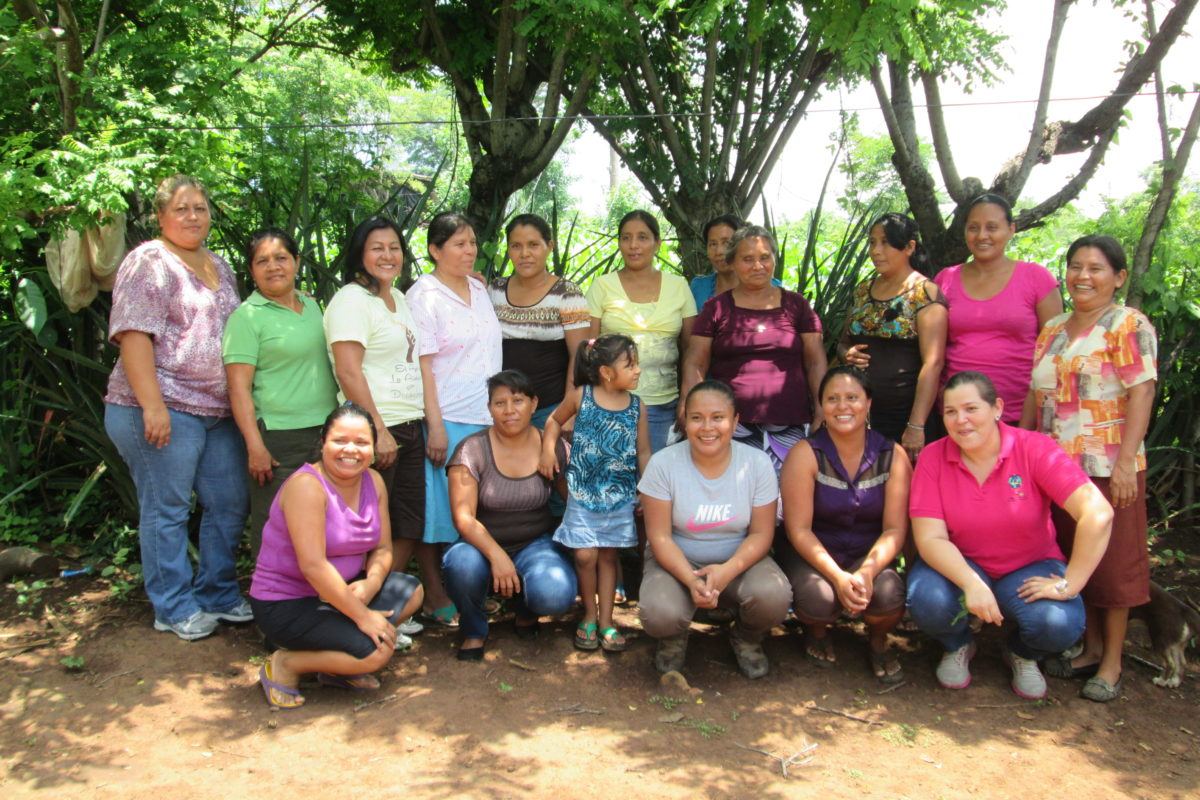
Dana Coppock-Pector spent the summer traveling through Mexico and Central America with Gilda Larios, our ESPERA fund facilitator, and now joins us in Saint Paul as our Development and Communications Intern. She shares with us her summer experience, and her evolving thoughts on the strength of women.
As a recent graduate from Whitman College, with a degree in Sociology and a passionate, perhaps idealistic desire to make a difference in the lives of others, I was drawn to Mary’s Pence from the tagline: “Funding Women. Changing Lives.” I was looking for an opportunity to travel, and hoped to revitalize the on-again-off-again Spanish I’ve been working to master for well over half my life. Mostly, I was looking to put my efforts into an organization aligned with my values, an organization representing the reasons that I chose to study sociology in the first place. As a young, progressive, amateur researcher, I absolutely love studying the complex, often unjust world in which we all live. Looking at what’s wrong, and trying to help fix it. Combating inequality with strength. I believe this is crucial for women everywhere as we face extreme systemic inequalities, worldwide. Although often perceived as weak, women have tremendous strength. We have to, in order to survive.
This summer was pivotal to my own appreciation for women’s strength, and not just because I began my work with Mary’s Pence. Weeks before I departed for my summer travels with Gilda, my grandmother died. I saw throughout my life that my grandma was a fighter. She fought and beat breast cancer, twice. She spent the last two years of her life fighting lymphoma, including undergoing chemotherapy at 87 years old. Like many others, she grew up poor during the Great Depression, and worked hard to assure that she and her family would lead more comfortable lives. Her love and generosity enabled me to pursue the education that she couldn’t at my age. To me, my grandmother was not just a fighter, she was, and continues to be, the strongest woman I know.
Still, her illness and subsequent death forced me to redefine my idea of strength. Despite my childish inclination to think of my grandmother as a superhero, it became clear to me later in life that in reality she was incredibly, and beautifully, human. She was fiercely proud. She hated showing weakness, and hid her adversity well, stubbornly suffering, often needlessly, rather than admitting that she required assistance. This was where her close friends and family, who could see the little hints of pain or fear or exhaustion in her eyes, would have to say, “let us help you” and she would graciously, if reluctantly, accept.
In fact, I find it is impossible to talk about the strength of women struggling, without talking about the strength of women helping. Here, I look to another female beacon of strength in my life— my mother. Her kindness, her patience, the inexhaustible pool of love and support she has shown me throughout my life, she also marshaled to care for her dying mother-in-law. This is one of the most important ways that women show strength: helping each other during times of need. Now when I feel strong and independent, which is most of the time, I think of my mother, and grandmother.
I redefine strength as the small voice in my head saying that it’s okay not to do everything alone. Sometimes, it takes more strength to ask for help than to try to do it all by ourselves.
This is, I believe, the core of the work done at Mary’s Pence; women helping women—motherhood, sisterhood, and solidarity. As I spoke with women of the Concertación in Suchitoto, El Salvador, so many of them emphasized the comradery and connection they felt as a result of the ESPERA funds they received. I heard the stories of trauma from survivors of the Salvadoran Civil War, of deep wounds, new or old, that can take years or sometimes lifetimes to heal. The women spoke about economic insecurity, abuse, the fear that they would not be able to support their families. In the Comunidad de Santo Domingo, the women we spoke to face the hardships of poverty everyday, yet they support each other in the community. These groups are working to generate economic independence and to be powerful role models for a new generation of female leaders. Every day they fight courageously for justice and every day they create hope. Their inspiration for me, so soon after my grandmother’s death, was profoundly moving.
In going through my grandmother’s office, my mother found a poem by Marge Piercy entitled “For Strong Women” which included the words:
A strong woman is a woman who loves
strongly and weeps strongly and is strongly
terrified and has strong needs. A strong woman is strong
in words, in action, in connection, in feeling;
she is not strong as a stone but as a wolf
suckling her young. Strength is not in her, but she
enacts it as the wind fills a sail.
What comforts her is others loving
her equally for the strength and for the weakness
from which it issues, lightning from a cloud.
Lightning stuns. In rain, the clouds disperse.
Only water of connection remains,
flowing through us. Strong is what we make
each other.
Mary’s Pence is not strong women helping weak women. On the contrary, it is strong women reinforcing other strong women as they help themselves, their communities, and their futures. Mary’s Pence doesn’t just fund support — it funds confidence, creativity, compassion, and change. The organization doesn’t console women who have suffered injustice in their lives; it assertively fights to combat that injustice, to empower the women, to change the world we inhabit, towards justice and peace.
I am excited and honored to join Mary’s Pence, and the strong women who are a part of it.
Dana Coppock-Pector


